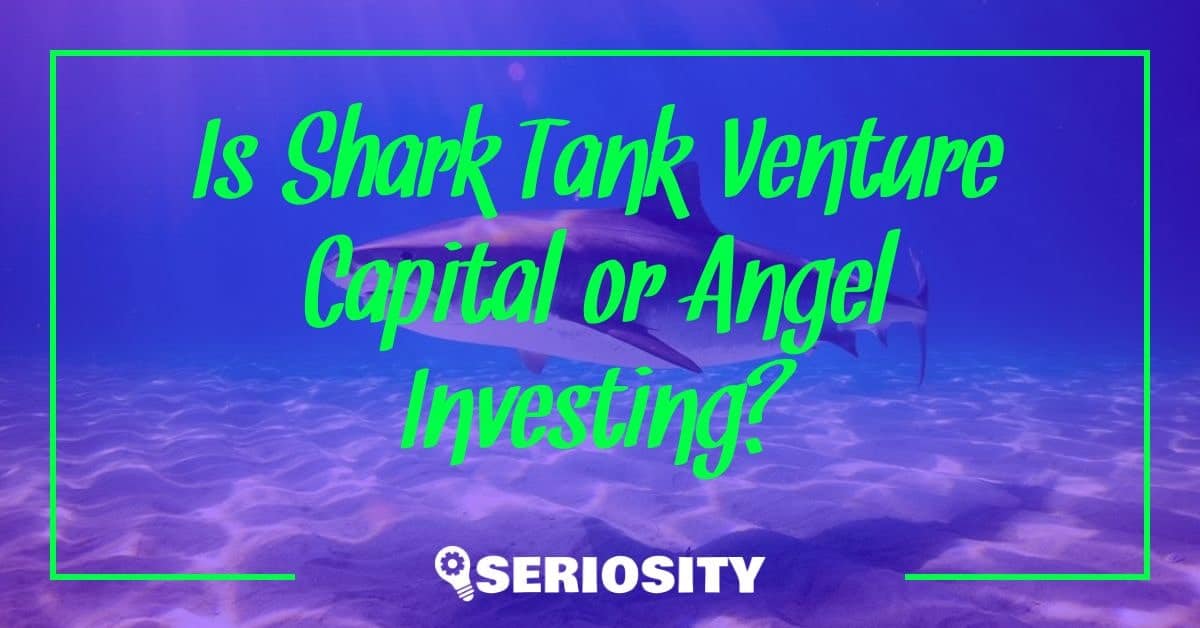There’s been a lot of talks recently about Shark Tank and whether it’s more representative of venture capital or angel investing.
While the show does feature some very successful entrepreneurs and investors, it’s important to remember that it is primarily entertainment.
That said, let’s take a look at the similarities and differences between Shark Tank and venture capital/angel investing to see if we can get a better understanding of what each is about.
What Is Venture Capital?
Venture capital is a type of private equity that is typically used to finance early-stage, high-growth companies. Venture capitalists are usually looking for companies that have the potential to be “unicorns” (companies that have the potential to achieve a billion-dollar valuation).
The venture capital process typically works like this:
- A venture capitalist meets with a startup founder to hear their pitch.
- If the VC is interested, they will do due diligence on the company.
- If they decide to invest, the VC will negotiate a deal with the startup.
- The VC will provide the startup with the capital they need to grow its business.
- In return for their investment, the VC will receive a percentage of the company’s equity.
Venture capitalists typically invest in companies that are in the early stages of their development, such as seed stage, startup stage, or Series A/B.
However, they will also occasionally invest in late-stage companies (Series C and beyond) if they believe the company has significant growth potential.
Once people appear on Shark Tank, their business is no longer in the early stages. So, it’s not really fair to compare Shark Tank to venture capital.
What Is Angel Investment?
Angel investment is another form of private equity to finance early-stage companies. Unlike venture capitalists, angel investors are usually individuals who invest their own money (rather than money from a VC firm).
These types of investors typically invest smaller amounts of money than venture capitalists. An angel investor may invest anywhere from $10,000 to $1 million in a company. Compared to venture capital, the angel investment process is much less formal.
So, Is Shark Tank Angel Investment or Venture Capital?
Amount of Investment
While the sharks on the show do occasionally invest large sums of money, they typically invest smaller amounts than venture capitalists would.
Venture capitalists tend to invest much more money than angels. This is because they’re looking for a higher return on their investment and are willing to take more risk. The investments on Shark Tank tend to be more in line with what angels would invest.
The highest amount ever offered on Shark Tank was $5 million, while the average venture capital deal is around $10 million.
The typical angel investment is around $25,000. As we mentioned before, the highest amount ever offered on Shark Tank was $5 million.
So, while there are some very large investments on Shark Tank, they’re not as common as they are in the world of angel investing.
Type of Investment
Venture capitalists typically invest in companies that have already proven themselves to some extent. Angels, on the other hand, are more likely to invest in earlier-stage companies that may be riskier but have the potential for high growth.
The investments on Shark Tank fall somewhere in the middle. One of the riskiest investments on the show was for a company called The New York Butcher Shoppe, which had no revenue and was in the pre-revenue stage.
However, the sharks were also willing to invest in companies that had already achieved some level of success, such as Bombas (a sock company that had already generated $12 million in revenue).
Experience Level
When it comes to experience, venture capitalists usually have a lot more experience than angel investors. This experience allows venture capitalists to provide guidance and advice to the businesses they invest in.
On Shark Tank, the investors often do provide guidance and advice to the entrepreneurs, but it’s not always clear how much experience they have in the specific industry. Most do have experience as investors and in business, but they don’t necessarily have experience in the industry of the company they’re investing in.
When Mark Cuban invested in a company called GrooveBook, he admitted that he didn’t really understand the photo-sharing market. Along with Kevin O’Leary, he invested $150,000 for 80% equity in the company.
Level of Formality
Angel investors typically have a less formal process than venture capitalists. They’re often more flexible in their investment terms and are more interested in the entrepreneur’s vision than the company’s financials.
The process on Shark Tank is also less formal than that of venture capitalists. The sharks are interested in the entrepreneur’s vision and are often willing to negotiate the terms of their investment.
Since Shark Tank is a show, there is some level of theatrics and drama. However, the general process is still less formal than that of venture capitalists.
The show’s process allows contestants to quickly present their ideas and sell the sharks on their vision. Within a few minutes, the entrepreneurs know whether or not they’ve landed an investment.
In the real world of angel investing, the process is often more drawn out and can take months or even years.
Level of Involvement
If you are looking for an investor that will give you space, venture capitalists are more likely to do so. Your typical venture capitalist tends to be much more hands-off than angels. They typically don’t get involved in the day-to-day operations of the businesses they invest in.
The sharks on Shark Tank are somewhere in the middle when it comes to level of involvement.
Barbara Corcoran is known for being very involved in the businesses she invests in. She often provides guidance and advice to the entrepreneurs she works with.
What It All Means
So, what does all this mean? Are the investments on Shark Tank more like venture capital or angel investing?
The answer is that they’re a bit of both. The investments on Shark Tank fall somewhere in the middle of venture capital and angel investing. They’re not as risky as angel investments, but they’re also not as formal or structured as venture capital investments.





